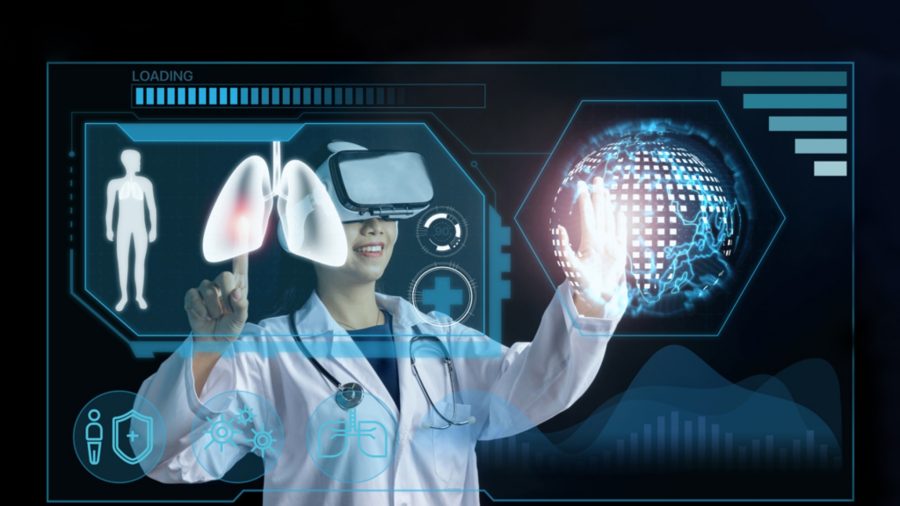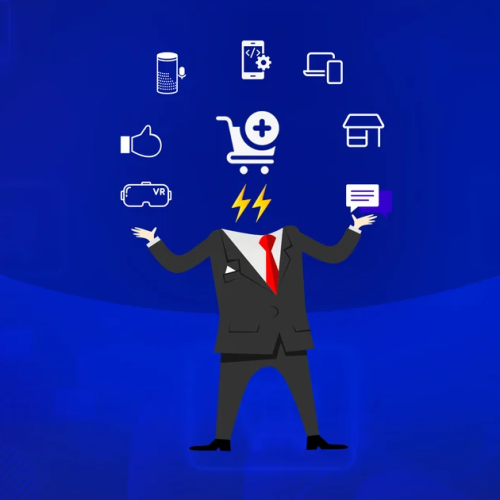Introduction: The Role of AI in Modern Healthcare
Artificial Intelligence (AI) is no longer a thing of the future—it’s happening now, and it’s reshaping healthcare in remarkable ways. From enhancing efficiency to improving diagnostic accuracy and making healthcare more accessible, AI is revolutionizing the way providers deliver care.
Hospitals and clinics are adopting AI-powered tools to detect diseases earlier, customize treatments for patients, and streamline workflows. By reducing operational costs and providing data-driven insights, AI is helping healthcare organizations focus more on what truly matters—patient care.
Healthcare providers are constantly looking for ways to enhance efficiency and deliver better patient care. AI-powered solutions are making this possible by automating administrative tasks, predicting health risks, and enabling remote patient monitoring. However, many healthcare organizations still face challenges in effectively integrating AI into their existing systems.
In this insight, we will explore real-world AI applications in healthcare, how businesses can leverage AI for better efficiency, and the best strategies for developing AI-powered healthcare solutions.
How AI is Revolutionizing Healthcare: Key Use Cases
AI in Medical Diagnostics: Faster and More Accurate Disease Detection
Traditional diagnostics rely heavily on human expertise, which can sometimes lead to delays and variability in results. AI-driven medical imaging and diagnostic tools are helping physicians detect diseases earlier and with greater accuracy.
Example Use Case: A hospital using AI-powered imaging software can analyze X-rays, MRIs, and CT scans within seconds, flagging potential anomalies for radiologists. AI models, such as those developed by Google’s DeepMind, can detect conditions like lung cancer with 94% accuracy. A study published in Nature (2020) demonstrated that DeepMind’s AI system outperformed human radiologists in identifying breast cancer from mammograms, reducing both false positives and false negatives. These advancements are enabling earlier interventions, leading to better patient outcomes..
AI for Personalized Treatment Plans
Every patient is unique, and their response to treatment can vary significantly. AI is making precision medicine a reality by analyzing a person’s genetics, medical history, and real-time health data to create more tailored and effective treatment plans.
Example Use Case: Imagine a cancer patient receiving chemotherapy. Traditionally, oncologists use standardized treatment plans, but AI can analyze the patient’s genetic profile and predict how they will respond to different drugs. This allows doctors to prescribe the most effective medication with the least side effects, minimizing unnecessary treatments and improving overall patient outcomes.
Hospitals and pharmaceutical companies are increasingly adopting AI-powered algorithms to analyze massive datasets, enabling them to move beyond a one-size-fits-all approach and offer personalized therapies that optimize recovery and reduce risks.
AI in Electronic Health Records (EHRs): Automating Data Management
EHRs have already revolutionized the way patient records are managed, but AI is taking this a step further by making these systems smarter, more intuitive, and proactive.
Example Use Case: Imagine a hospital where doctors need to update patient records manually after every consultation, taking valuable time away from patient care. AI-powered voice recognition and Natural Language Processing (NLP)now allow physicians to dictate notes, which are automatically transcribed and structured into the EHR system in real time.
Beyond documentation, AI can analyze patterns in patient data to identify those at risk of complications. For example, if a patient has consistently rising blood pressure and a history of cardiovascular issues, AI can flag them as high-risk and notify healthcare providers to intervene early. This kind of predictive insight helps doctors make proactive decisions, reducing hospital readmissions and improving patient outcomes.
Example Use Case:
A busy primary care clinic integrates an AI-powered chatbot to assist patients with routine inquiries such as:
- What are my test results?”
- “Can I reschedule my appointment?”
Instead of relying on overburdened staff, the AI system provides instant, accurate responses, helping streamline administrative tasks. This allows healthcare professionals to focus on urgent cases while ensuring patients receive immediate support.
By reducing wait times and improving communication, AI-driven chatbots enhance patient engagement, making healthcare more accessible and efficient for both providers and patients.
AI in Predictive Analytics: Optimizing Healthcare Operations
Hospitals often face overcrowding, resource shortages, and inefficient scheduling. AI-driven predictive analytics helps forecast patient admissions, optimize staffing, and improve hospital workflow.
Example Use Case: An AI-powered system analyzes historical admission trends, disease outbreaks, and seasonal variations to predict emergency room capacity needs. This allows hospital administrators to adjust staffing levels and allocate resources more effectively, reducing patient wait times and improving service quality.
Development Strategies: How Healthcare Companies Can Leverage AI
- Building AI-powered healthcare applications: Ensuring AI models are trained on diverse, high-quality datasets to improve accuracy.
- Seamless integration with existing healthcare systems: Using APIs and cloud-based platforms to ensure smooth AI adoption.
- Ensuring compliance with regulations (HIPAA, GDPR): Protecting patient data and maintaining security while deploying AI solutions.
- Overcoming AI adoption challenges: Educating healthcare providers and staff on AI’s benefits and usability to drive successful implementation.
The Future of AI in Healthcare: What’s Next?
AI is rapidly evolving, and the next decade will bring even more groundbreaking innovations in healthcare:
- AI-powered robotic surgeries: Enhancing surgical precision with AI-assisted robotic systems.
- AI & IoT for remote patient monitoring: Using wearable devices to track patient vitals in real time.
- AI in drug discovery: Speeding up research and reducing costs for new pharmaceuticals.
- AI-driven mental health solutions: Using AI-powered chatbots to provide real-time therapy and emotional support.
How Maven Technology Can Help
At Maven Technology, we are committed to helping healthcare organizations harness the power of AI to improve patient outcomes and streamline operations. Our team specializes in developing custom AI-powered healthcare solutions that enhance efficiency, accuracy, and decision-making in clinical settings.
Whether you need AI-driven diagnostics to detect diseases earlier, predictive analytics for smarter resource management, intelligent chatbots to improve patient engagement, or automated EHR systems to reduce administrative workload, we create tailored, secure, and compliant solutions that seamlessly integrate with your existing healthcare infrastructure.
By working with us, you get more than just technology—you get a trusted partner dedicated to making AI work for your healthcare business.
Want to Explore AI for Your Healthcare Business?
If you’re looking to develop an AI-powered healthcare application, our experts can help you navigate the process.
Book a Free Consultation today and discover how AI can transform your healthcare business!




